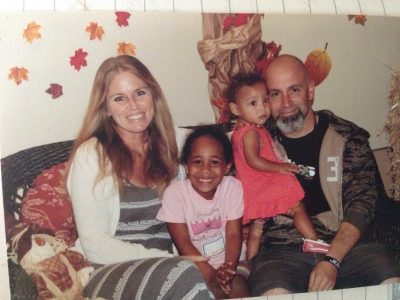Song of the month: Never Grow Up by Taylor Swift
November is Happy Adoption Month!
November is also Happy Premie Month!
This month I’d like to celebrate our Little Eden Hope Alexia Jones, who we Adopted at 1 lb 2 oz July 2013.
In honor of Our Super Girl Eden, I’d like to share a helpful list our Adoption agency shared with us. Before I adopted, I never thought about the effect my simple statements could have on those within the adoption community. The list below identifies a few ways we can take notice of the language we use when speaking about adoption, or to families who have been made through adoption.
Words can be very powerful things. Adoption may be more popular these days, but this also means that more negative language can be thrown in the way of a child who has been adopted. Although you may not know it, some of the adoption language commonly heard today can actually have a very negative effect on adoption, as well as adopted children, adoptive families and birth parents. Whether it’s in your church, school, family or play, most everyone will come into contact with a family who has been built through adoption.
The way we speak about adoption helps others form their opinion of adoption. It can also impact how a child who’s been adopted feels about their adoption and their identity. For example, referring to your child as your “adopted son” or “adopted daughter” could make them feel as if they don’t truly belong to your family, a feeling that could greatly impact a child’s self-esteem.
It’s import to note that a child is first a child and then adopted. They are not an “adopted child” but a child who has been adopted. A parent of an adoptive child is just that. A parent. S/he is not an “adoptive parent”, but a “parent who has adopted”.
In addition, one very commonly used phrase regarding birth parents is that they “gave up” or “gave away” their child for adoption. This negative term implies that the birth parents didn’t care about their child – when, in reality, birth parents choose adoption out of nothing but love for their child. Instead of this negative language, say that a birth parent “placed their child for adoption” or that they “made an adoption plan.” This positive language more accurately reflects the situation, without painting a negative picture of birth parents.
According the U.S. Census, 1 in 25 households with children has at least one adopted child. An even greater ratio of people have certainly been touched by adoption through friends and extended families.
It’s up to those of us who have been blessed by adoption to change the conversation among our friends and families and in our schools and communities. We are responsible to educate as we’ve been educated. A good rule I learned early on when speaking to families who’ve adopted was to ask myself, “Would I want someone to ask me this question?” “Does it matter?” “Am I just wanting the Juice on this kid? Why?” “Is it healthy for the family for me to ask this question?”
Adoption is not some steamy, life-time for women soap opera story. If we were to really dig, there would be no more “juice” or “gossip” surrounding a family built through adoption, than any other family. Just like any other family, families built through adoption are real people, with real family joys, sorrows, dysfunctions and blessings. Just like all families, families built through adoption like to share some of their story while keeping other things private.
Below is a list of some commonly used negative adoption language and the positive phrases that should be used in their place:
1.Negative: Real parent (implies the parents who have adopted are not real)
Positive: Birth parent, birth mother, birth father
2.Negative: Give up/give away child for adoption
Positive: Place child for adoption, make an adoption plan
3.Negative: To keep (why didn’t they want to keep the baby?)
Positive: To parent (why couldn’t they parent the baby?)
4.Negative: Unwanted child
Positive: Child placed for adoption
5.Negative: Is adopted (Clinton is adopted)
Positive: Was adopted (Clinton was adopted)
6.Negative: Adoptive parent
Positive: Parent
7.Negative: Handicapped
Positive: Child with special needs
8.Negative: Illegitimate
Positive: Born to unmarried parents
9.Negative: Adopted child
Positive: Child who’s been adopted
10. Negative: Are they sisters/brothers? (This is confusing for a child to hear, cause they are in the same family)
Positive: Did they have the same birthparents?
Feel free to share this post with as many people as you wish.
And Happy Adoption Month!
